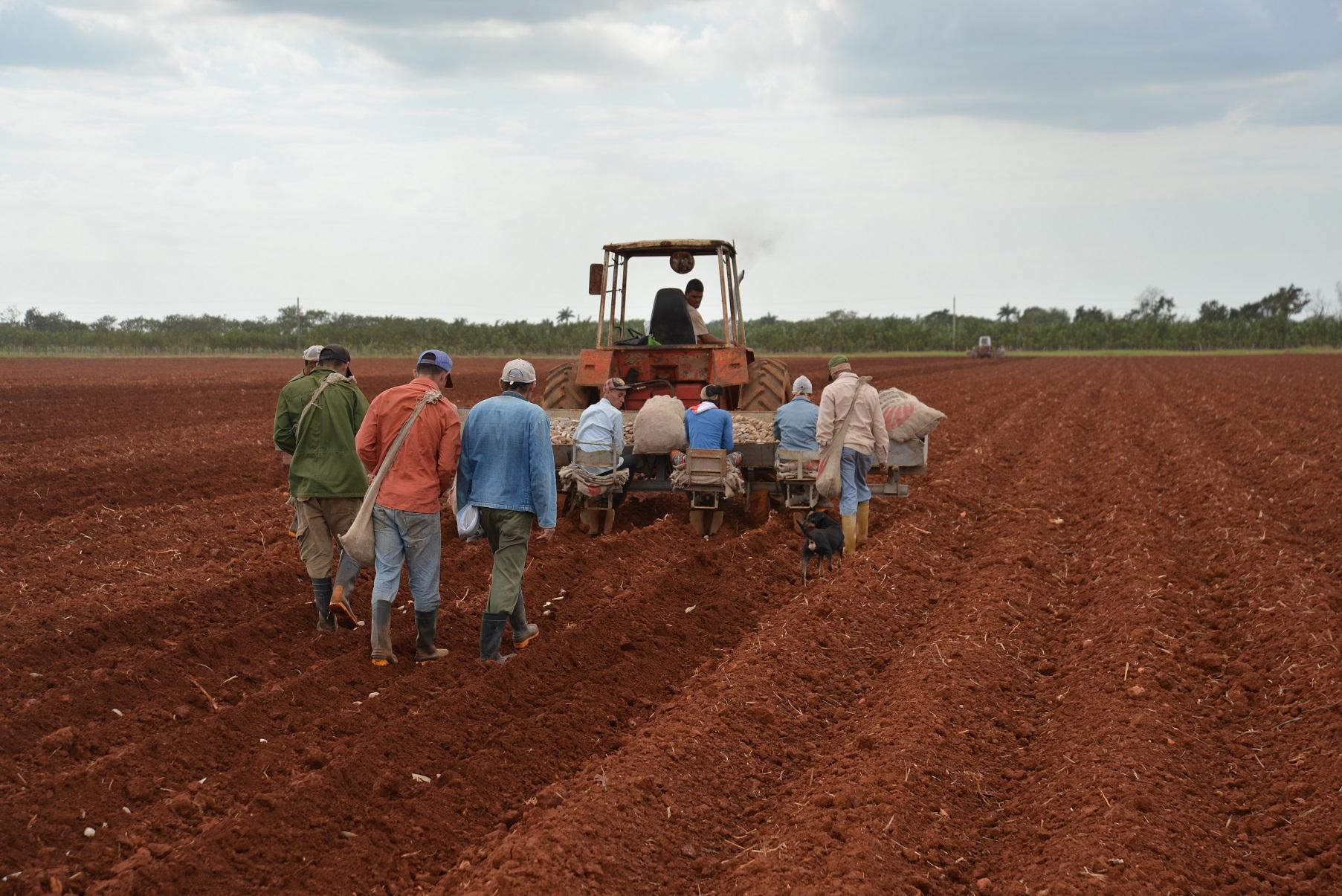Influence of different pest management systems in potato production on PEsticide REsidues in CUban SOils (PERECUSO)

This project systematically investigates the influence of different pest management systems in Cuban potato production on environmental and human exposure by quantifying pesticide residues in soils and potato tubers, together with a number of agro-environmental parameters of productivity, soil fertility and ecosystem services, over several cultivation periods.
About the project
Background
The fate and behavior of pesticides in tropical environment are understudied in comparison to temperate regions, with corresponding deficits in environmental and human risk assessment. These are particularly eminent for their primary recipient matrix soil, and in case of potato cultivation because of the large variety and quantities of pesticides applied.
Objectives
With PERECUSO, we aim for a systematic investigation of different pest management systems in Cuban potato production and of their impacts on environmental and human exposure. We will quantify pesticide residues in soils and potato tubers, together with a number of agro-environmental parameters of productivity, soil fertility and ecosystem services, over several cultivation periods. Three different systems will be studied at full scale that are agro-ecological, private, and state farms, with none, moderate and high pesticide use, respectively. Residual pesticide residue concentrations in soils and potato tubers will be compared with predicted concentrations, and interpreted in light of the different pest management and fertilization regimes, observed environmental effects, suitable pesticide risk indicators and legislation where applicable. Environmental effect and pesticide risk indicators related to the compartment soil are various parameters indicative of soil functioning and fertility as for instance organic matter, pH, texture, and biological soil properties, such as microbial biomass, soil respiration, arthropod species diversity and abundance, with a focus on spiders and “ladybirds”, and a soil biodiversity index.
An economic cost-benefit analysis of these production methods will complement the environmental and human risk assessment. The dynamic range covered by the three different agricultural systems in Cuba will be further expanded by inclusion of equivalent data obtained as part of the pesticide survey program of the Swiss Soil Monitoring Network (NABO).
Relevance
For pesticide research, in particular, the Cuban socio-economic setting is unique in as much as pesticide management is more centrally and rigorously organized and documented than in most other Caribbean countries, allowing for more systematic fate and behavior studies in dependence of actual pesticide input. Still, Cuba’s environment is representative for other countries in the region, such that PERECUSO’s results will be of greater and general relevance.
By elucidating pesticide burdens in soils and crops in dependence of different pest management systems, PERECUSO provides the basis to reduce pesticide use, and to lower environmental and human exposure and risks. This contributes directly or indirectly to several goals and targets of the 2030 Agenda for Sustainable Development Goals.
Highlights and most important results
PERECUSO will help to minimize pesticide application rates and economic costs of crop production. With that, the corresponding environmental and human risks will decrease, while food and feed quality and ecosystem services will be maintained.
Geographic scope
- Cuba
Links to project website and to P3
- Links to project website and to project on SNSF research database P3
